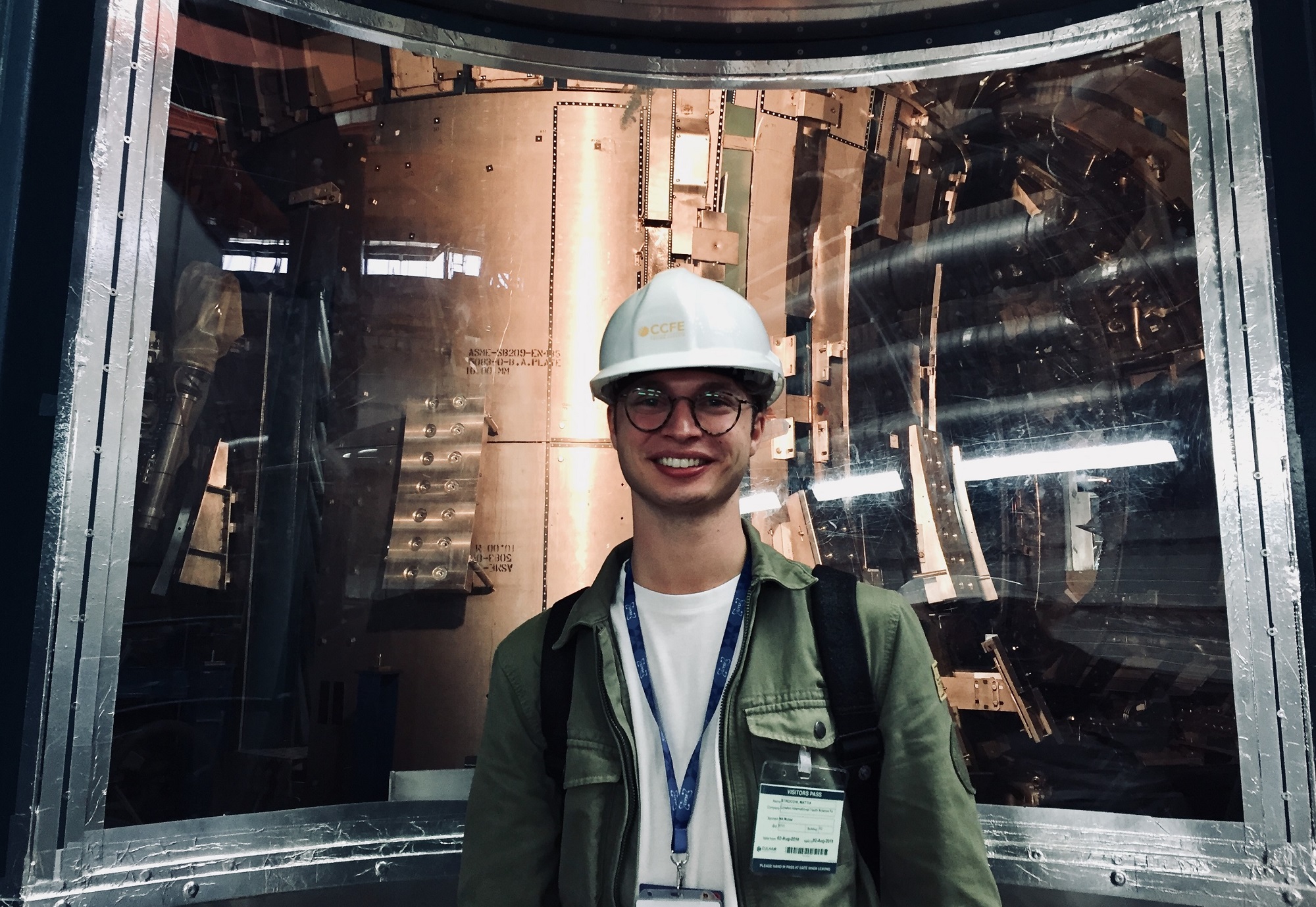Developing an advanced prototype in a bachelor’s programme is one of the things that sets TU Delft apart, says computer science student Mattia Strocchi.
Mattia Strocchi: “Being able to do a project like this is why I’m happy I came to the Netherlands.” (Photo: Mattia Strocchi)
“I’m originally from Italy and during my last year of high school, I had some international experiences, one in Japan and one in the US. They were both only a few weeks long, but I think those kinds of experiences really change the way you think and the way you are. So I started to feel like it wasn’t sufficient for me to stay in Italy to study. The university system in Italy is fairly good, but they don’t have the same infrastructure and resources as you have here in the Netherlands.
I’m in my third year of a bachelor’s in Computer Science & Engineering. At the moment I’m doing my minor in Advanced Prototyping. I needed to find a project to work on for the minor, and I thought that the cycling helmet technology we have today feels a bit old. They are made of foam, which is something we use for packaging. Given what we can build today thanks to material science and 3D printers, having a helmet made out of foam might not be the optimal solution.
Our skull has areas that are weaker than others. If you produce a helmet out of foam with the same thickness for every part of your head you are trying to protect all the areas in the same way. This is not necessarily the best way to design helmets. Theoretically, you should be able to have different areas of the helmet that are optimised for different properties like transpiration, lightness, and safety. It is interesting to investigate if you could, one day, have a helmet that is made out of different materials. This hypothetical helmet would in first place protect your head better, but it could also provide a better transpiration system so that your head would easily cool down during intense activity.
‘It’s fairly difficult to mould this kind of structure into the shape of a helmet’
I have created a model of a lattice structure that looks like a three-dimensional spring. The idea is that these kinds of 3D printed materials are very flexible and very lightweight. Consequently, they can provide good airflow and at the same time maybe better shock-absorbing properties. It’s fairly difficult to mould this kind of structure into the shape of a helmet so that might be a reason why up until now we haven’t seen a lot of prototypes like this on the market.
Within the minor, one of the steps is that we get ourselves 3D scanned. I have a model of my head 3D scanned and the idea is that from this you should be able to build a product that is perfectly customised for a certain person. Then the next step is having a parametric design that is based on whatever model you put in, and it will automatically generate the perfect-fit helmet for that person. Right now, I’m just testing the shape, but I’m also trying to test the properties of the materials and the design of the overall helmet. I’m about halfway through my project so in about four or five weeks we should have the first proof of concept of it.
Being able to do a project like this is why I’m happy I came to the Netherlands. In computer science right now, there are a lot of jobs and you have a lot of choices even right after you finish your bachelor’s degree. You could start working right away and be perfectly happy because there are so many interesting positions out there. I don’t know what I want to do yet. I think I will need to consider all of the opportunities, both master’s and work opportunities, and then I can make a decision.”
Who are the people who work and study on campus? We meet them in Humans of TU Delft. Want to be featured in this series? Or do you know someone with a good story to tell? Send us an e-mail at humansoftudelft@gmail.com
Heather Montague / Freelance writer



Comments are closed.